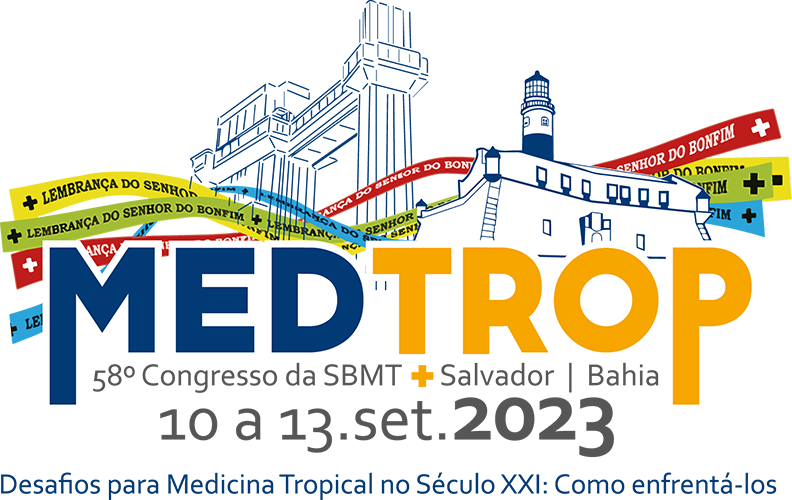Dados do Trabalho
Título
Validation of a NGS metagenomic protocol for viral diagnosis in clinical samples
Introdução
The metagenomic analysis of data from next-generation sequencing technologies (NGS) has been applied in the diagnosis and surveillance of known and/or emerging pathogens in clinical samples.
Objetivo (s)
This work aimed to standardize and validate a NGS metagenomic protocol for viral diagnosis in clinical samples.
Material e Métodos
Training datasets were used in benchmarks to test the different bioinformatics workflows (wf) and to optimize the processing time for basecalling and demultiplexing. The main difference between our four wfs consisted of the software used for taxonomic classification: Kraken2, local BLAST, Genome Detective and Epi2ME, respectively. A serial dilution assay using the attenuated poliovirus oral vaccine (OPV) was performed to test the detection threshold of our methods. Retrospective and recent clinical samples of arboviruses, suspected cases of viral meningitis, acute respiratory tract infections and chronic infections caused by viral hepatitis and HIV, in addition to samples of viral isolates were tested. Viral RNA was enriched by DNAse depletion. cDNA was synthesized by reverse transcription and amplified by SISPA prior to the library preparation and sequencing in a portable MinION device (ONT). An accuracy analysis was performed using different cut-offs (0.0% to 5.0%) of relative abundance at the reads and contigs levels to eliminate “noise” or sequencing artifacts.
Resultados e Conclusão
The basecalling using fast model was optimized to 1.36 hours, and hac model to 30.72 hours, which represents a reduction of 10% and 81%, respectively, in the average processing time when compared to default parameters. Enteroviruses present in OPV was identified up to a 10-4 dilution by different wfs. A total of six libraries were prepared containing 35 clinical specimens with confirmed RNA virus infection. Wf3 showed the best accuracy at the reads (70%) and contigs (67%) levels of analysis using a cut-off ≥ 1.0%. The results of this study demonstrate that the use of a NGS metagenomic protocol enables the accurate diagnosis of clinically important viral pathogens. Advances in MinION methodology can reduce costs and enable its use in routine diagnosis, with the advantage of allowing surveillance and discovery of emerging agents.
Palavras-chave
Validation Protocol, Metagenomics, Virome, Nanopore Sequencing, Next Generation Sequencing
Agradecimentos
CAPES, YALE University, Bill & Melinda Gates Foundation, Instituto Gonçalo Moniz - Fiocruz Bahia
Área
Eixo 02 | Tecnologia e Inovação em saúde
Categoria
NÃO desejo concorrer ao Prêmio Jovem Pesquisador
Autores
Alessandra Gonzalez do Nascimento, Taryn Ariadna Castro Cuesta, Joseph Fauver, Nathan Grubaugh, Federico Costa, Luciano Kalabric Silva

 Português
Português English
English